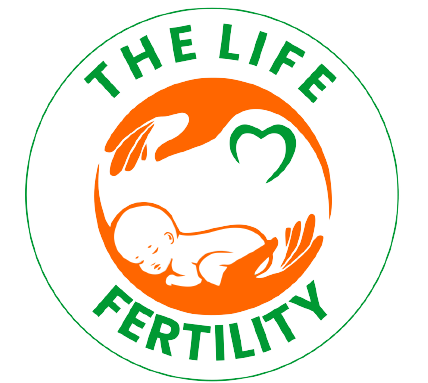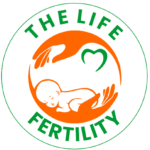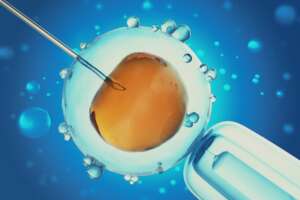Fertility and cardiovascular health may seem like separate issues, but recent research has revealed a significant connection between the two. Both the heart and reproductive systems rely on proper blood flow, healthy hormonal regulation, and overall bodily function. When cardiovascular health is compromised, it can affect fertility, making it more challenging to conceive. Understanding the link between fertility and cardiovascular health is crucial for those trying to conceive or looking to maintain optimal reproductive health. In this article, we’ll explore how heart health impacts fertility and how improving cardiovascular health can boost reproductive outcomes.
How Cardiovascular Health Impacts Fertility in Women
The link between fertility and cardiovascular health is seen in how cardiovascular health plays a vital role in female fertility. The heart pumps blood throughout the body, supplying organs, tissues, and, most importantly, the reproductive organs, with essential oxygen and nutrients. If cardiovascular health is compromised, the reproductive system may not receive the necessary blood flow to function optimally. This can lead to hormonal imbalances, irregular ovulation, and difficulties with conception.
For women trying to conceive, high blood pressure (hypertension), high cholesterol, and heart disease can all contribute to fertility problems. For instance, high blood pressure can interfere with the development of healthy eggs, while high cholesterol levels can disrupt hormonal production, which is essential for ovulation. Conditions like metabolic syndrome, which is a cluster of risk factors for heart disease, are also known to affect fertility by causing hormonal imbalances, insulin resistance, and weight gain, all of which can negatively impact fertility.
Can Heart Disease Affect a Woman’s Fertility?
Heart disease, whether it’s a history of heart attacks or coronary artery disease, can have a profound effect on fertility. Women who have heart disease may experience difficulty getting pregnant or face complications during pregnancy. This can be due to the body’s compromised ability to supply blood and nutrients to the reproductive organs or the increased stress that heart disease places on the body, making conception more challenging.
Moreover, heart disease treatments such as medications for high blood pressure or cholesterol-lowering drugs may also interfere with fertility. Some drugs, for example, may disrupt hormonal balance or ovulation, making it more difficult for women to conceive.
The Impact of Cholesterol Levels on Fertility
Cholesterol is essential for hormone production, including the hormones responsible for regulating the menstrual cycle and ovulation. However, when cholesterol levels are too high, they can lead to the build-up of plaque in the arteries, decreasing blood flow to the ovaries and other reproductive organs. This reduced blood flow can impact the health of eggs and hinder the ability of women to conceive.
Both high and low cholesterol levels are linked to fertility issues. High cholesterol can lead to ovulatory dysfunction and insulin resistance, while low cholesterol can interfere with the production of reproductive hormones, affecting ovulation and menstrual cycles.
How Cardiovascular Health Affects Male Fertility
Cardiovascular health is just as important for men when it comes to fertility. A healthy heart pumps blood to the reproductive organs, and proper circulation is essential for sperm production and overall fertility. Studies have shown that men with poor cardiovascular health, such as those with hypertension, diabetes, or obesity, may experience lower sperm count, poor sperm motility (movement), and abnormal sperm morphology (shape).
Conditions like high cholesterol and high blood pressure can impair sperm quality and hinder the ability to conceive. Additionally, lifestyle factors that affect cardiovascular health, such as smoking, excessive alcohol consumption, and lack of exercise, are also known to lower sperm quality.
The Role of Diet in Cardiovascular and Fertility Health
One of the most effective ways to improve both cardiovascular and fertility health is through a heart-healthy diet. A balanced diet that promotes cardiovascular health can improve fertility by ensuring the body receives the necessary nutrients to support reproductive function.
Eating a Mediterranean-style diet, rich in fruits, vegetables, whole grains, healthy fats, and lean proteins, has been shown to benefit both heart health and fertility. Omega-3 fatty acids, found in foods like fish and flaxseeds, are particularly important for improving sperm quality and egg health. Reducing processed foods, added sugars, and unhealthy fats can help regulate cholesterol and blood pressure, improving overall health and fertility.
The Role of Exercise in Improving Cardiovascular and Fertility Health
Regular physical activity plays a key role in maintaining cardiovascular health and enhancing fertility thereby establishing the link between fertility and cardiovascular health. Exercise helps regulate weight, lower blood pressure, and improve cholesterol levels. For women, exercise can also help improve hormonal balance and regulate menstrual cycles, which are essential for conception.
For men, regular exercise is linked to improved sperm health, including higher sperm count and better motility. However, it’s important to strike a balance—excessive exercise, particularly in endurance athletes, can have the opposite effect, potentially lowering testosterone levels and sperm count.
How Stress Affects Cardiovascular and Fertility Health
Chronic stress is another factor that can negatively affect both cardiovascular and fertility health. Stress can raise blood pressure, affect heart function, and disrupt hormone production, all of which can make it more difficult to conceive. For women, stress can interfere with ovulation and menstruation, while for men, stress can lower sperm count and motility.
Managing stress through relaxation techniques, such as meditation, yoga, and mindfulness, can improve both cardiovascular and fertility outcomes. These practices help lower cortisol levels, improve circulation, and promote hormonal balance, all of which are crucial for reproductive health.
The Importance of Cardiovascular Screenings for Women Trying to Conceive
If you’re planning to start a family, it’s essential to consider cardiovascular health as part of your fertility journey. Regular cardiovascular screenings, including blood pressure checks, cholesterol tests, and blood sugar monitoring, can help identify potential risks early on. Managing cardiovascular health proactively can increase your chances of a healthy pregnancy and improve your overall fertility outcomes.
Conclusion
The link between fertility and cardiovascular health is clear—healthy heart function is essential for reproductive health. Poor cardiovascular health, including high blood pressure, high cholesterol, and heart disease, can negatively impact fertility in both men and women. By maintaining a heart-healthy lifestyle through a balanced diet, regular exercise, stress management, and routine screenings, you can improve both your cardiovascular and fertility health. For those trying to conceive, understanding and addressing cardiovascular risks can play a significant role in optimizing fertility and increasing the chances of a successful pregnancy.




